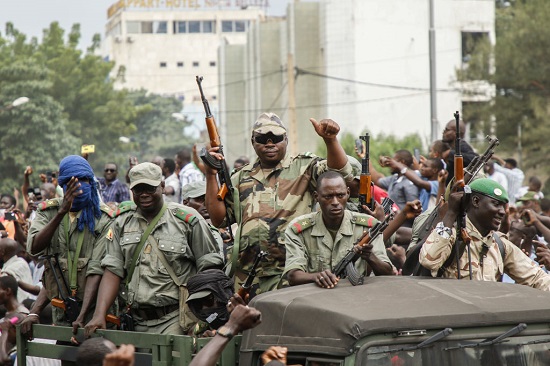Power grabs in West Africa over the past year – in Chad, Mali and most recently Guinea – are enjoying newfound impunity, leaving citizens angry and distressed.
“What’s the use of constitutions, the Economic Community of West African States, and international diplomacy if after all, anything goes?” asked Ahmed Sankare, a mobile telephone vendor in the Malian capital Bamako.
ECOWAS and many voices in the international community condemned the Guinea coup, as they did a year ago and again in May for Mali.
The words have been the same: restore constitutional order, free detainees, set a timeline for elections.
But a year later, Mali’s military remain in command, with doubts growing over their promise to return the Sahel country to civilian rule through elections in February 2022.
In Chad, after Idriss Deby Itno died fighting rebels on April 20, his son seized power.
Former colonial power France, Chad’s main trading and strategic partner, quickly gave its blessing to the new leadership, refraining from describing what took place as a coup.
– ‘A favourable climate’ –
“I do think that the international community has sacrificed its leverage, first by its acquiescence to the coup in Mali — the US is the only major external power to maintain a cut-off of military assistance to Bamako until constitutional order is restored,” said Peter Pham, former US envoy to the Sahel.
“And then by Chad, where France led the way by literally, in the person of Macron, embracing the son of the late President who took over,” he added, referring to French President Emmanuel Macron.
Jean-Herve Jezequel of the International Crisis Group (ICG) think tank warned against the idea that the coups in Mali and Chad helped trigger Guinea’s putsch.
But “the way these recent coups in Chad and Mali were accepted, even validated, by regional and international actors has probably created a favourable climate for what happened in Guinea,” he said.
Burkinabe news outlet Wakat Sera drew parallels between the coups in Guinea and Mali.
The new strongman in Conakry, Lieutenant Colonel Mamady Doumbouya, simply “recited the formula for power grabs through arms… like a recording that all putschists everywhere use”, it argued.
– ‘Domino effect’ –
In Bamako, a top official, speaking on condition of anonymity, said the coups in Mali and Chad could create a “domino effect”, with militaries elsewhere saying to themselves “why not us?”
In Guinea’s case, “experience tells us to be extremely cautious and not too naive,” Fabien Offner of Amnesty International told AFP.
“Some see the end of the (Alpha Conde) regime as a good thing, (but) it’s not the first time that there are hopes in West Africa and they are often dashed,” he said.
The message in the Wakat Sera editorial to the international community was clear: “Stop with the ostrich policy” and the “broken record” of toothless condemnations, it said.



